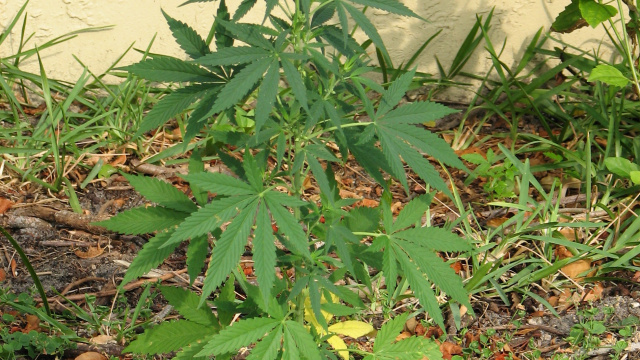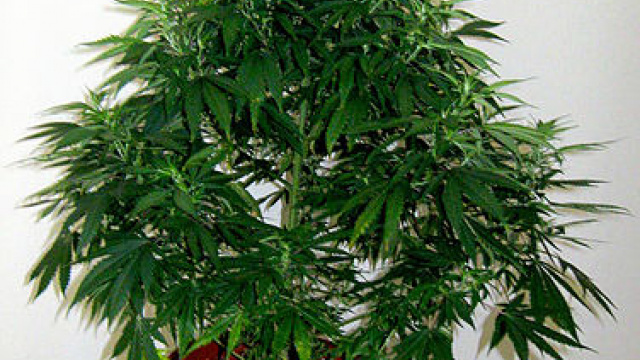 Ottawa’s decision to phase out both government and personal medical marijuana production came as no surprise to patient advocates who opposed the new rules.
Ottawa’s decision to phase out both government and personal medical marijuana production came as no surprise to patient advocates who opposed the new rules.
“I’m not surprised a bit,” said Ric Bills, who organized a rally protesting the proposed changes in Sechelt earlier this year. “I didn’t think public comments would change what they had in store. The Harper government doesn’t seem to care about patients whose lives are stake. They put it all on public safety. They’re really sticking it to the people.”
On June 10, Federal Health Minister Leona Aglukkaq announced Ottawa was proceeding with its plan to stop producing and distributing medical pot and is also removing the right of patients or their designates to grow their own plants.
Under the new system, all production will shift to private companies operating under contract to Health Canada and prescribed patients will only be able to obtain medical pot by mail order. A suggestion in the draft regulations to allow pharmacists to dispense the product was scrapped after the Canadian Pharmacists Association strongly objected to the plan.
The changes are expected to mean significantly higher prices for patients who currently grow their own, and that will breathe new life into the black market, Bills predicted.
“The black market will get more profitable because if people can’t grow it themselves, they’ll go to the black market for it. Some people can’t afford it. They’ll keep growing and risk their freedom, and I guess some will be in pain. It’s pretty backward,” he said.
Bills, who was a lawyer in the U.S. before relocating to Halfmoon Bay, said Canada is “really behind the curve” compared to states such as Colorado and Washington, which are legalizing and planning to tax recreational marijuana.
“They’re going ahead. We’re going backwards,” he said.
The new system, he said, will likely attract commercial operators who are in it for the money.
“You can’t really know patients through a mail order system. It’s very impersonal.”
Both medical pot programs will operate concurrently until March 31, 2014, when the current regulations will be repealed, Health Canada said in a release.
Explaining the reason for the change, Health Canada said its medical pot program had grown exponentially since 2001 from 500 to more than 30,000 authorized persons.
“This rapid increase has had unintended consequences for public health, safety and security as a result of allowing individuals to produce marijuana in their homes,” the release said. “Under the new regulations, production will no longer take place in homes and municipal zoning laws will need to be respected, which will further enhance public safety.”
Aglukkaq confirmed details of the new program during a press conference held on June 10 in an Ottawa fire hall.
“While the courts have said that there must be reasonable access to a legal source of marijuana for medical purposes, we believe that this must be done in a controlled fashion in order to protect public safety,” Aglukkaq said. “These changes will strengthen the safety of Canadian communities, while making sure patients can access what they need to treat serious illnesses.”
Bills questioned the number of fires that were actually sparked by medical marijuana grow-ops, and said the cost of related home invasions nationwide quoted by government — about $2 million per year — was a “pretty pathetic” figure.
“I think they’re blowing up their statistics and the harm of it all, and it’s not going to do away with medical marijuana grows,” Bills said.
Saying education and inspections would be a far better approach, Bills reiterated a theme expressed by patients and growers at the Sechelt rally in February.
“The Harper government doesn’t want it to work. They’re going to spend a lot of money dragging it through the courts, and they’re going to lose, because the courts have been clear that it has to be reasonable access,” he said.
The new rules, he added, are “just scary” in light of the Conservatives’ mandatory minimum sentencing provisions and civil forfeiture laws, which could result in unlicensed growers having their homes seized.
“There’s Charter rights involved — that’s what people don’t understand,” Bills said. “They’re constitutional rights and government is taking them away.”
Source: Coast Reporter (CN BC)
Copyright: 2013 Coast Reporter
Contact: [email protected]
Website: http://www.coastreporter.net/
Author: John Gleeson



Leave a Reply